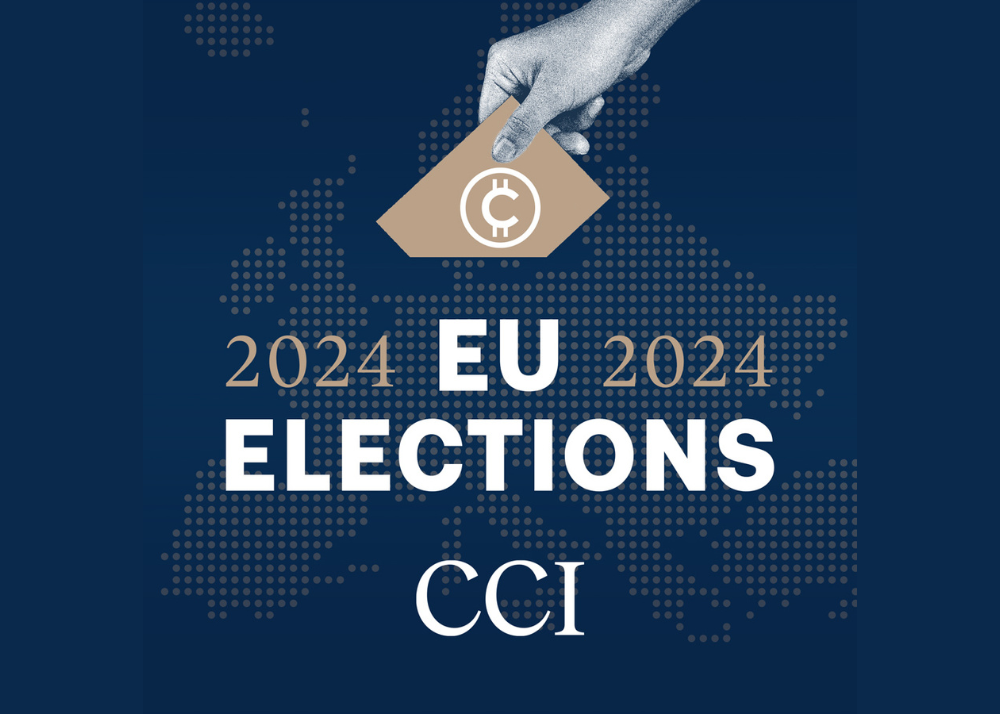
Summary
- The CCI filed an amicus brief in support of Coinbase and the challenge to the Securities and Exchange Commission’s (SEC) denial of Coinbase’s petition for rulemaking.
- By refusing to clearly explain why and how the current legal framework is sufficient, the SEC has attempted to enshrine its regulation-by-enforcement approach, depriving market participants of fair notice as to what is permissible and chilling innovation in an emergent industry.
- The SEC’s inadequate response to Coinbase’s rulemaking petition forces good actors to decipher the SEC’s evolving views based on public statements by officials, litigation filings, and (sometimes inconsistent) judicial rulings.
- Without clear, consistent guidance that makes compliance possible, the digital asset industry will not achieve its full potential in the United States and will be pushed to other jurisdictions actively seeking to host the next wave of innovation. This will deprive American consumers of access to digital assets, their diversification, decentralization, and manifold benefits.
- The SEC’s refusal to engage in traditional rulemaking in favor of vague and inconsistent enforcement actions has caused and will continue to cause significant harm to American competitiveness in the new, digital age.
- In our brief, we detail the fact that in the SEC’s order denying the request for rulemaking, the SEC wrote a *single* sentence regarding the alleged “effectiveness” of the current system. This statement was devoid of any meaningful detail or reasoning. Such failure to engage is arbitrary and capricious and constitutes a violation of the Administrative Procedure Act (APA), which requires the SEC to provide a reasoned explanation for its denial of Coinbase’s rulemaking petition.
- Read the amicus brief here.
What is an amicus brief?
An amicus brief is a written argument filed by a person or a group who is not a party to an action, but has an important interest in the matter. The objective of the brief is to help inform the court’s decision. Amici can be written by experts who have studied a topic extensively and are able to place the case and its potential impacts into a wider context. More details about what an amicus brief is can be found here.
How did we get here?
In July 2022, Coinbase filed a petition for rulemaking asking the SEC to use its formal rulemaking process to provide guidance for the digital asset industry. After the SEC did not respond to the rulemaking petition, in April 2023, Coinbase then filed a petition for writ of mandamus with the Third Circuit Court of Appeals to compel the SEC to respond to the rulemaking petition.
Then, the Third Circuit issued an order directing the SEC to file a responsive answer to the Coinbase mandamus petition. Only after the Third Circuit requested a status update in the mandamus proceeding, the SEC eventually denied Coinbase’s rulemaking petition without providing any meaningful detail or reasoning.
Coinbase has challenged that denial by filing a new action against the SEC in the Third Circuit, asserting that the SEC’s refusal to engage in rulemaking regarding digital assets violates the APA, and the SEC’s failure to provide a reasoned explanation for its denial of Coinbase’s rulemaking petition is arbitrary and capricious.
The SEC’s refusal to engage in substantive rulemaking perpetuates an unworkable regulatory blackhole and leaves no viable path for good actors
The distinct and novel features of digital assets differ significantly from traditional financial instruments issued by central banks, and therefore present regulatory challenges that necessitate thoughtful rulemaking. However, the SEC has failed to provide clear regulatory guidance for the digital assets industry, opting instead for enforcement actions that have resulted in uncertainty for market participants.
The SEC’s approach of urging digital asset organizations to “come in and register” is simply not feasible for several reasons. First, there is a lack of actionable guidance as to which assets require registration. Second, existing registration requirements are often ill-suited for digital assets given their distinctive character from traditional assets. For example, digital assets are unlike stocks, bonds, or investment contracts in that people use digital assets to, among other things, serve as a medium of exchange or vote on governance proposals.
The SEC’s inconsistency in determining which assets require registration further adds to the confusion. For instance, while the SEC once declared that Bitcoin was not a security, the agency has nevertheless denied approval for certain Bitcoin exchange-traded funds (ETFs) without providing sufficient rationale.
Despite numerous petitions for regulatory clarity, the SEC has resisted traditional rulemaking processes, instead focusing on enforcement actions, which have increased significantly. In fact, such enforcement actions have now more than doubled on a per year basis since 2021. The SEC’s positions in its enforcement action fail to provide clarity on the agency’s views of which digital assets are investment contracts, further contributing to an opaque regulatory landscape.
Attempts by digital asset companies to register with the SEC have been met with heavy fees and long waits, proving detrimental to their businesses. Even if companies were to successfully register—which is not currently possible—the SEC’s refusal to license intermediary exchanges would essentially eliminate the trading value of registered tokens.
Overall, the SEC’s failure to construct a coherent regulatory framework leaves market participants unable to discern compliance requirements.
The SEC’s refusal to adequately explain its denial of Coinbase’s petition for rulemaking obstructs due process by stymying judicial review and evading proper rulemaking procedures
Under administrative law, the notice and comment rulemaking process for agencies like the SEC is critical for ensuring transparency, predictability, and democratic participation in regulatory decision-making. This process fosters an exchange of views between agencies and stakeholders, facilitating the formulation of informed and coherent regulations. By disclosing the reasoning behind proposed rules and considering public input, agencies enhance the legitimacy of their decisions and promote respect for the law.
In the context of the digital assets industry, the absence of a formal rulemaking process deprives stakeholders of clear and predictable regulatory standards. Unlike enforcement actions, which leave industry participants deciphering regulators’ evolving views based on agency briefs and court outcomes, rulemaking provides a fixed framework for structuring actions. Moreover, the notice and comment process allows for the identification of real-time problems and facilitates proactive collaboration between regulators and industry players to address challenges.
If an agency fails to engage in the rulemaking process—as the SEC has done here—its actions may be struck down as “arbitrary and capricious” under the Administrative Procedure Act (APA). The SEC’s denial of Coinbase’s rulemaking petition without substantive explanation deprives industry participants of fair notice and equal treatment. Without a coherent regulatory framework, market participants will continue to struggle to determine compliance requirements, hindering their ability to operate within the law. Accordingly, the SEC is required to “show its work” by providing a reasoned explanation for why it has refused Coinbase’s request to commence the rulemaking process.
The SEC’s refusal to engage with industry beyond an enforcement-only approach is causing irreparable harm to the U.S. digital assets market, forcing good actors to flee to countries with clearer guidelines
A fundamental principle of the U.S. financial system is that consumer and national security protections are strongest when activity occurs domestically and under the oversight of U.S. regulators. In fact, the White House has recognized the potential of digital assets to bolster U.S. leadership in the global financial system, but this potential is diminished when innovative firms relocate to other jurisdictions. However, the SEC’s reluctance to engage in substantive rulemaking, as required by the APA, perpetuates a regulatory limbo where even responsible industry participants are fleeing abroad to countries that offer the needed regulatory guidance.
Instead, the SEC’s reliance on enforcement-only tactics rather than engagement in an open regulatory process impedes the growth of the domestic digital asset market. While the SEC fails to provide regulatory clarity in the U.S., other countries are actively embracing digital innovation by establishing clear regulatory frameworks.
- For instance, the United Kingdom is creating a regulatory framework to position itself as a leading hub for digital asset innovation.
- Similarly, the European Union’s “Markets in Crypto Act” (MiCA) promotes the region’s broader goals of digital transformation by embracing digital asset innovation while addressing the associated risks. Countries across Asia Pacific have also taken proactive steps to provide regulatory certainty for digital assets, in sharp contrast to the legal ambiguity pervading the U.S. Hong Kong has developed a comprehensive legal framework that includes protections for investors.
- Likewise, the United Arab Emirates and Japan have implemented guidelines and regulations for digital assets.
The proactive regulatory approaches of other jurisdictions highlight how regulatory clarity and proactive measures could reasonably attract digital asset companies away from the U.S. Some have already taken their operations abroad, and others may soon follow suit. For example, a major digital assets exchange recently acquired a virtual asset service provider license in Ireland as a crypto crackdown continues in the U.S. Even Coinbase CEO Brian Armstrong has indicated the possibility of relocating from the U.S. if regulatory ambiguity persists.
The SEC’s refusal to engage in substantive rulemaking perpetuates a legal and regulatory purgatory where good actors cannot act, and bad actors thrive.
Read our arguments in the amicus brief in full here.

























